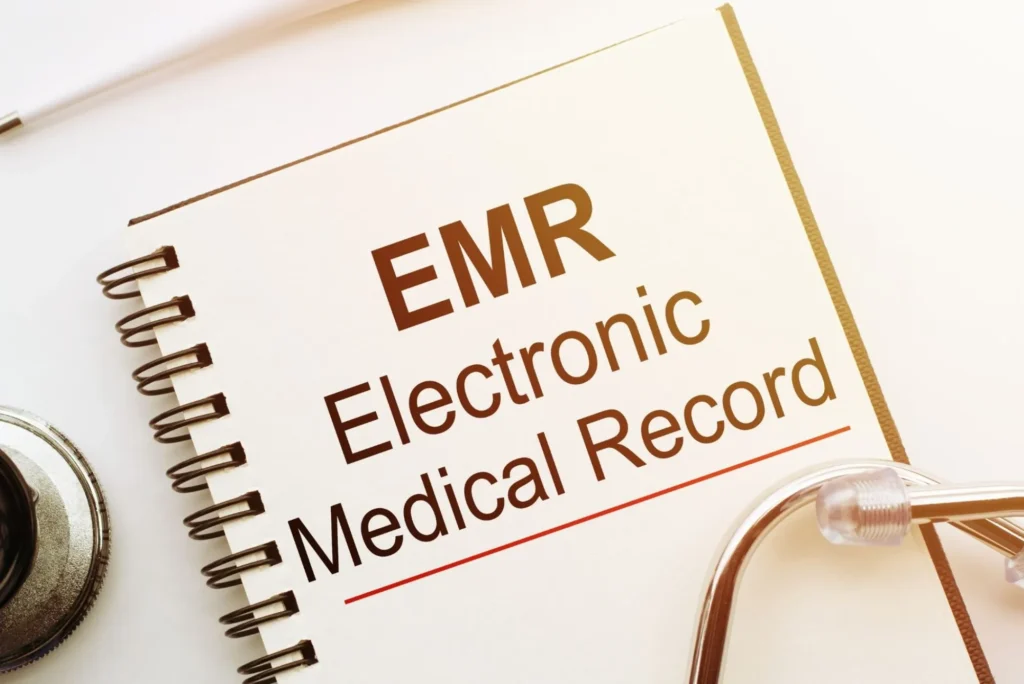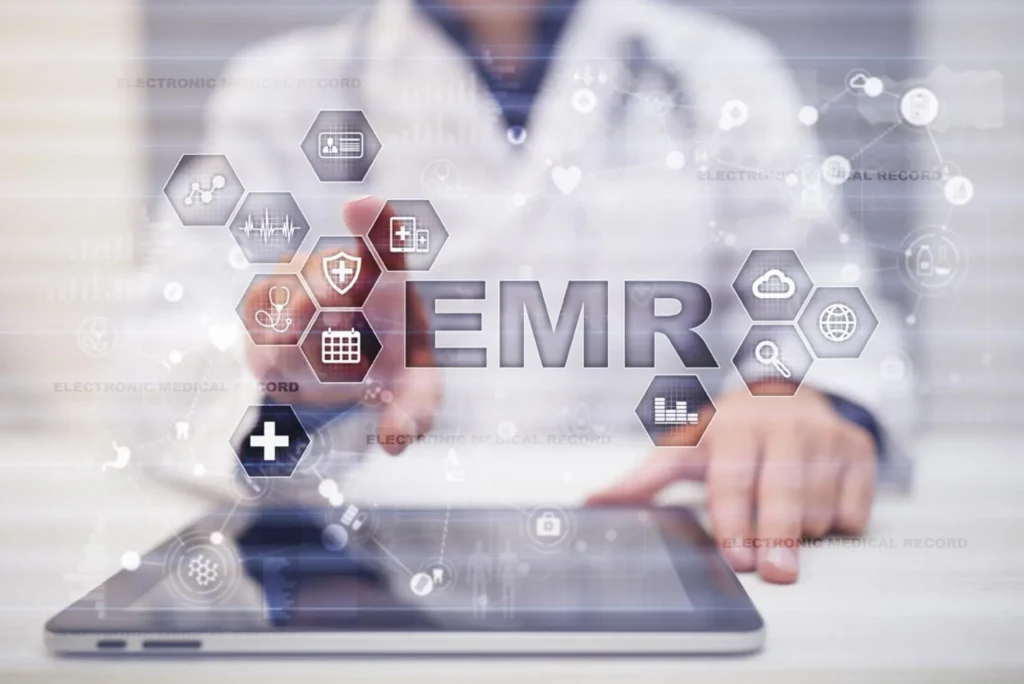What is EMR in Healthcare?
In the rapidly evolving landscape of healthcare, technology plays a crucial role in enhancing the quality of care and improving patient outcomes. One such technological advancement is the Electronic Medical Record (EMR). EMR systems have transformed the way medical records are managed, stored, and accessed. This article delves into the concept of EMR, its benefits, challenges, and its overall impact on the healthcare industry.
What is an Electronic Medical Record (EMR)?
An Electronic Medical Record (EMR) is a digital version of the paper charts in a clinician’s office. It contains the medical and treatment history of the patients in one practice. EMRs are more than just a replacement for paper records. They allow for better data tracking over time, improved quality of care through data-driven decisions, and easier access to patient information.
Key Features of EMR
- Comprehensive Data Storage: EMRs store extensive patient data, including medical history, diagnoses, medications, treatment plans, immunization dates, allergies, radiology images, and laboratory test results.
- Enhanced Communication: Facilitates better communication between healthcare providers and patients, ensuring seamless continuity of care.
- Improved Patient Care: Provides healthcare professionals with timely and complete information about the patient’s health, aiding in more accurate diagnosis and treatment.

Benefits of EMR in Healthcare
Improved Patient Safety and Quality of Care
EMRs contribute significantly to patient safety by reducing medication errors, improving clinical outcomes, and ensuring adherence to clinical guidelines. Automated alerts and reminders help healthcare providers stay updated on the latest patient information and necessary preventive care measures.
Enhanced Efficiency and Productivity
EMR systems streamline administrative tasks such as appointment scheduling, billing, and insurance claims processing. This efficiency reduces the burden on healthcare staff, allowing them to focus more on patient care. Furthermore, EMRs facilitate quick access to patient records, leading to faster decision-making and improved workflow.
Cost Savings
While the initial investment in EMR systems can be substantial, the long-term savings are significant. By reducing paperwork, eliminating duplicate testing, and improving health outcomes, EMRs can lead to considerable cost savings for healthcare organizations.
Better Data Analytics
EMRs enable healthcare providers to analyze large volumes of data to identify trends, improve clinical practices, and conduct medical research. This capability enhances the overall quality of care and supports evidence-based medicine.
Challenges of EMR Implementation
High Initial Costs
The implementation of EMR systems requires a significant financial investment, including the cost of software, hardware, and training. For smaller practices, these costs can be a substantial barrier.
Training and Adaptation
Transitioning from paper-based records to EMRs requires comprehensive training for healthcare staff. Resistance to change and the learning curve associated with new technology can hinder the adoption process.
Privacy and Security Concerns
The digital nature of EMRs raises concerns about data privacy and security. Protecting patient information from cyber threats and ensuring compliance with regulations such as HIPAA are critical challenges that healthcare organizations must address.
Interoperability Issues
Ensuring that different EMR systems can communicate and share information seamlessly is a significant challenge. Lack of interoperability can lead to fragmented patient information and hinder coordinated care efforts.
The Future of EMR in Healthcare
As technology continues to evolve, EMRs are expected to become more advanced and integrated into the healthcare ecosystem. Emerging trends include the use of artificial intelligence (AI) and machine learning to enhance data analytics, predictive modeling, and personalized medicine. Additionally, greater emphasis on interoperability and patient-centered care will drive innovations in EMR systems.
Artificial Intelligence and Machine Learning
AI and machine learning can analyze vast amounts of data to predict patient outcomes, identify potential health risks, and recommend personalized treatment plans. These technologies can enhance the functionality of EMR systems, making them more intuitive and proactive in supporting clinical decision-making.

Interoperability Advancements
Efforts to improve interoperability between different EMR systems and other healthcare technologies are ongoing. Standards such as HL7 and FHIR are being developed to facilitate seamless data exchange, ensuring that healthcare providers have access to comprehensive patient information regardless of the system they use.
Patient-Centered Care
Future EMR systems will likely place a greater emphasis on patient engagement and empowerment. Features such as patient portals, mobile health applications, and telemedicine integration will enable patients to take a more active role in managing their health.
The adoption of Electronic Medical Records (EMR) has revolutionized the healthcare industry, offering numerous benefits such as improved patient safety, enhanced efficiency, and better data analytics. Despite the challenges associated with implementation, the future of EMR systems looks promising with advancements in technology and a focus on interoperability and patient-centered care. As healthcare continues to evolve, EMRs will play an increasingly vital role in delivering high-quality, efficient, and personalized care.
Kerala Health Department
The Kerala Health Department is renowned for its exemplary public health initiatives and robust healthcare system. It has consistently prioritized the well-being of its citizens through various health programs and policies. The department’s focus on preventive healthcare, innovative health schemes, and community-based interventions has significantly improved health outcomes in the state. Kerala’s achievements in maternal and child health, infectious disease control, and universal healthcare access are notable examples of its commitment to public health.
Kerala’s health department has also leveraged technology to enhance healthcare delivery. The implementation of electronic health records, telemedicine services, and mobile health applications has increased the accessibility and efficiency of healthcare services. By fostering partnerships with private healthcare providers and international organizations, the Kerala Health Department continues to innovate and address emerging health challenges. Its proactive approach in handling the COVID-19 pandemic further underscores its capability and resilience in managing public health crises.
Amana Health Care
Amana Health Care is a leading provider of specialized medical and rehabilitation services. It is dedicated to delivering comprehensive care to patients with complex medical needs. With a focus on patient-centered care, Amana Health Care offers a range of services including long-term care, post-acute rehabilitation, and home healthcare. The organization is committed to improving the quality of life for its patients through personalized treatment plans, advanced medical technologies, and compassionate care.
Amana Health Care operates state-of-the-art facilities equipped with the latest medical equipment and staffed by highly skilled healthcare professionals. The multidisciplinary team at Amana Health Care collaborates to develop and implement individualized care plans that address the unique needs of each patient. By integrating medical, therapeutic, and support services, Amana Health Care ensures a holistic approach to patient care. The organization’s dedication to excellence is reflected in its continuous efforts to enhance patient outcomes and promote health and well-being.


